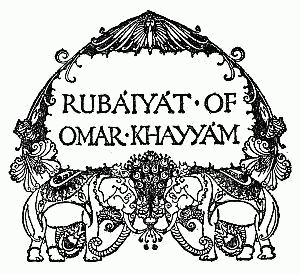 In the recent issue of ‘Iranian Studies’, Erik Nakjavani, (Professor Emeritus of Humanities, University of Pittsburgh, USA) reviews and discusses two recent volumes on the Rubáiyát of Omar Khayyám. The first is Edward FitzGerald’s Rubáiyát of Omar Khayyám: A Famous Poem and its Influence, by William H. Martin and Sandra Mason (Anthem Press, 2011).
In the recent issue of ‘Iranian Studies’, Erik Nakjavani, (Professor Emeritus of Humanities, University of Pittsburgh, USA) reviews and discusses two recent volumes on the Rubáiyát of Omar Khayyám. The first is Edward FitzGerald’s Rubáiyát of Omar Khayyám: A Famous Poem and its Influence, by William H. Martin and Sandra Mason (Anthem Press, 2011).
The reviewer discusses this work in respect of contemporary views about reception and assessment of poetry, by enthusiasts and devotees as well as scholars and academics. Some quatrains are quoted to illustrate ontological and metaphysical dimensions in the Rubáiyát, which turns this part of the review into a more or less philosophical essay.
Next Nakjavani reviews a second volume: Edward FitzGerald’s Rubáiyát of Omar Khayyám: Popularity and Neglect, edited by Adrian Poole, Christine van Ruymbeke, William H. Martin, and Sandra Mason (Anthem Press, 2011), in which he summarizes and discusses the separate essays. This volume contains the essays that were presented at a conference, held at the University of Cambridge, July 2009.
The reviewer judges the two volumes as “dual complementary works of scholarship, reflection, and academic research, in the strongest sense of the adjectives. Scholars, academics, literary critics, translators, and those who love poetry and share Khayyám’s and FitzGerald’s twofold concerns with the human lived experience of being and nonbeing will find these twin texts of much interest.”
Erick Nakjavani (2014) FitzGerald’s Rubáiyát of Omar Khayyám: Critical
Celebrations of a Beloved Poem, Iranian Studies, 47:4, 627-648, DOI: 10.1080/00210862.2014.906184
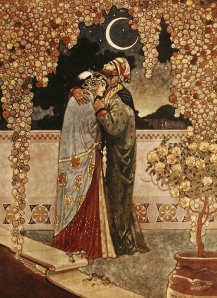
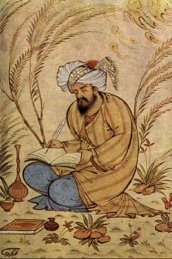 The Library of Congress opened an exhibition on March 29, titled “A Thousand Years of the Persian Book”. Purpose of the exibition is to take visitors on a visual journey of the rich literary history of Persian language, and to explore works of religion, science, modern literature, children’s books, women’s literature and the highly illustrated masterpieces of classical poetry for which Persian literature is most famous.
The Library of Congress opened an exhibition on March 29, titled “A Thousand Years of the Persian Book”. Purpose of the exibition is to take visitors on a visual journey of the rich literary history of Persian language, and to explore works of religion, science, modern literature, children’s books, women’s literature and the highly illustrated masterpieces of classical poetry for which Persian literature is most famous.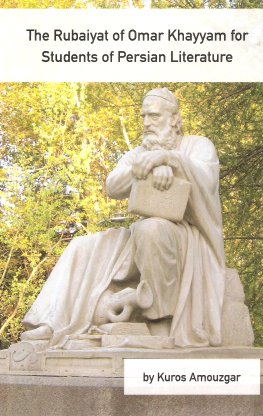 Kuros Amouzgar, educated as an engineer and living in the USA, translated the Persian text of Furughi and Ghani’s edition of the Rubáiyát, to help his children’s generation enjoy their Persian literary heritage. These children of Iranians living outside their homeland, often lack knowledge and understanding of the Persian language and literature. Khayyám is one of the most famous and well known Persian poets and his verses are easier to comprehend and to translate than other Persian poets.
Kuros Amouzgar, educated as an engineer and living in the USA, translated the Persian text of Furughi and Ghani’s edition of the Rubáiyát, to help his children’s generation enjoy their Persian literary heritage. These children of Iranians living outside their homeland, often lack knowledge and understanding of the Persian language and literature. Khayyám is one of the most famous and well known Persian poets and his verses are easier to comprehend and to translate than other Persian poets.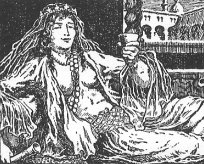
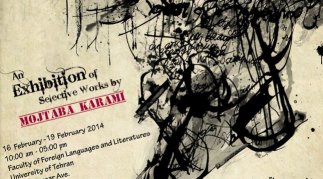
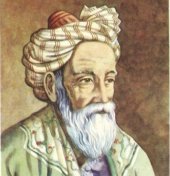 Quatrains from Khayyam’s poetry were performed by Opera singer Lynly Butt and the film on the life and times of Khayyam “The Keeper — The Legend of Khayyam” was screened. However, in Professor Kazi´s view “the directors and producers commercialise and distort the history.”
Quatrains from Khayyam’s poetry were performed by Opera singer Lynly Butt and the film on the life and times of Khayyam “The Keeper — The Legend of Khayyam” was screened. However, in Professor Kazi´s view “the directors and producers commercialise and distort the history.”